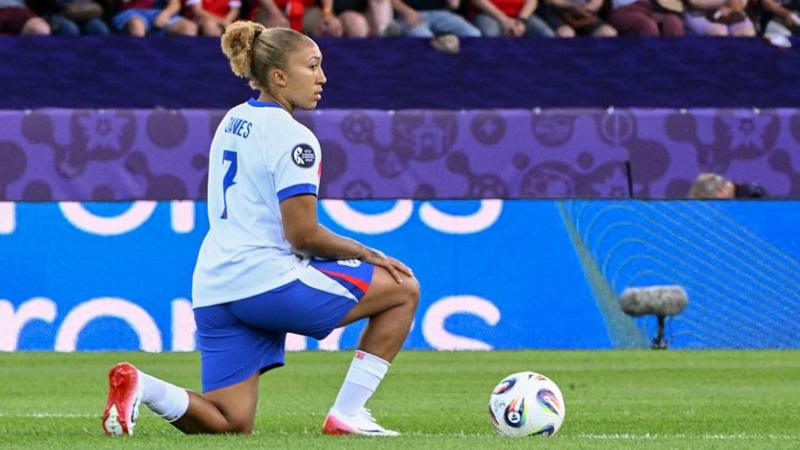Anti-Racism Outcry as England Skips Taking the Knee



In a move that has sparked considerable debate within the football community, the English national team decided to discontinue the practice of taking the knee before matches in the lead-up to Euro 2025. This decision has drawn criticism from various quarters, including from Piara Powar, the head of Fare, an organization dedicated to combating inequality in football and tackling discrimination.
The backdrop to this development involves a disturbing incident where Jess Carter, a prominent player for the England women's football team, was subjected to racial abuse on social media. Such incidents painfully underscore the ongoing challenges of racism in sport, a reality that Fare and similar organizations continually strive to address.
The gesture of taking the knee began gaining prominence during sporting matches in 2016 when NFL player Colin Kaepernick knelt during the U.S. national anthem to protest racial injustice and police brutality. The symbol was subsequently adopted across different sports worldwide, including football, as a silent yet powerful demonstration against discrimination.
In international football, this gesture was notably embraced in the wake of George Floyd’s murder in May 2020, which set off a global reckoning on race relations. The English football teams, among others, began taking the knee before every game as part of a collective stance against racial inequality.
However, the English Football Association’s recent decision to cease this act at Euro 2025 has been met with mixed reactions. Some argue that the gesture has served its purpose and that actions should speak louder than the symbolic act. Others believe that ceasing to take the knee might suggest a premature declaration of victory over racism in sport when incidents like the abuse faced by Jess Carter clearly indicate the persisting struggles.
Piara Powar's skepticism about England’s decision not to take the knee is grounded in a concern that such a move might weaken the momentum towards real change. Speaking on the matter, Powar suggested that while symbolic gestures like taking the knee are not solutions in themselves, they play a critical role in keeping the conversation about racial discrimination alive and pressing.
The debate also touches on how athletes embody roles that stretch beyond sport. They are seen not just as sports personnel but as public figures with the power to influence societal issues and model behaviors that reflect the values of equality, diversity, and respect. The decision to stop taking the knee, therefore, isn't just a tactical or aesthetic choice, but also a socio-political statement that has wider implications.
England’s move also provokes questions about the impact of activism in sports and how best to effect change. While some fans and players believe that ongoing visible protests are essential to remind us of the work yet to be done, others feel that the time might be right to evolve the approach and find new, perhaps more impactful ways to combat racism.
Looking ahead, the football community and its stakeholders may need to explore multifaceted strategies that combine symbolic actions with substantive policy changes and community engagement efforts. Education, along with strong disciplinary measures against racism, enhanced support for affected players, and broad-based inclusion initiatives, might constitute a more comprehensive approach to eradicating racism in the beautiful game.
As Euro 2025 approaches, the eyes of the world will not only be watching the performances on the field but also observing how football as a global sport continues to handle issues of racial discrimination. Whether or not taking the knee is part of that process, the underlying struggle for equality and respect continues to command attention and demands a committed response from all quarters of the sport.